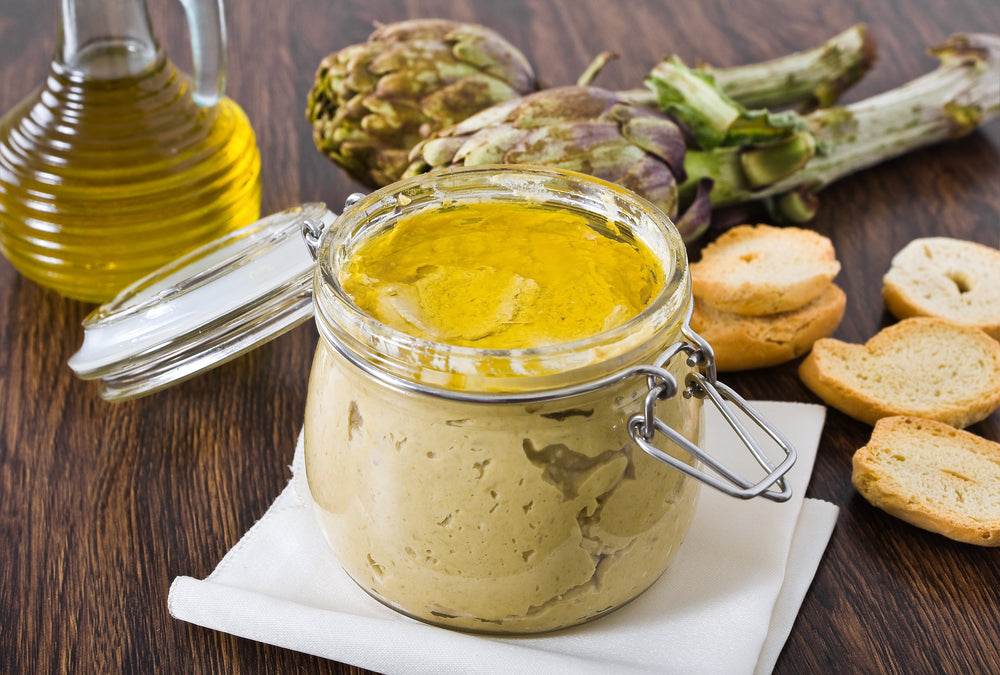Mustard is one of the most loved condiments and is used in a variety of ways to add flavour to different foods. The word mustard has been derived from the Latin word 'mustum', which means unfermented grape juice – this is because back in ancient days, the Romans ground the mustard seeds and then mixed them with grape juice. Hence, the phrase 'mustum ardens', which meant burning wine, was also a common Latin derivation. The spicy mustard seeds, when mixed with the juice of unfermented grape juice, created a distinct wine.
Mustard is available in a variety of flavours, depending on the way it has been made and what additional ingredients have been added to it, and one such variation is Irish Mustard.
What is Irish Mustard?
Irish Mustard is a flavourful condiment that has roots in Irish culinary tradition. It is made from a blend of mustard seeds, vinegar, sugar, and spices such as turmeric and garlic. What sets Irish Mustard apart is its use of Irish ale or stout in the recipe, that gives it a rich and complex flavour. This tangy and slightly sweet mustard is perfect for adding a subtle kick to sandwiches, meats, and dressings. Its bold flavour pairs well with dishes such as corned beef and cabbage or traditional Irish soda bread.
Origins of Irish Mustard

Irish mustard has a long history that dates back centuries. While mustard itself has been used in various forms since ancient times, the specific development of Irish mustard likely occurred more recently, possibly in the 19th or early 20th century.
Irish mustard is often associated with artisanal producers and small-batch manufacturers who prioritize quality and authenticity. These producers use locally sourced ingredients and traditional methods to create their mustard.
Today, Irish mustard continues to be enjoyed both domestically and internationally and is prized for its unique flavour. It can be used as a condiment for sandwiches, meats, and cheese platters or incorporated into marinades, dressings, and sauces to enhance the flavour of dishes.
Famous Irish Mustard Brands in the UK
Some top brands of Irish mustard available in the UK include:
Connemara Kitchen – The brand Connemara is known for its traditional Irish food products. Connemara Kitchen offers a range of mustards infused with flavours like Irish whiskey, honey and herbs.
Lakeshore – Lakeshore is another popular brand that produces a variety of Irish mustards that are usually made from locally sourced ingredients using traditional recipes.
Ballymaloe – Ballymaloe Foods is known for its range of Irish condiments, including mustard that is made from selected ingredients and created using traditional methods.
Irish Black Butter – While not exclusively a mustard brand, Irish Black Butter offers a unique twist on traditional mustard with its Apple Cider & Irish Whiskey Mustard, which combines the flavours of Irish whiskey and apple cider vinegar.
Recipe for Irish Mustard

Here is a recipe that can help you prepare your own jar of Irish Mustard:
Ingredients
- 1/2 cup mustard seeds (yellow or brown)
- 1/4 cup Irish whiskey
- 1/2 cup apple cider vinegar
- 1 tbsp honey
- 1/2 tsp salt
Preparation
- Place the mustard seeds in a bowl and pour the apple cider vinegar over them. Let the mustard seeds soak in the vinegar for at least 12 hours or overnight. This helps soften the seeds and develop their flavour.
- After soaking, place the mustard seeds and vinegar to a blender or food processor. Add the Irish whiskey, honey, salt, and ground turmeric (if using).
- Blend the mixture until it become smooth. The consistency should be thick and spreadable. You can also adjust it by adding more vinegar or whiskey if desired.
- Taste the mustard and adjust the seasoning to your liking. Add more honey for sweetness, salt for seasoning or whiskey for a stronger flavour.
- Once you are happy with the flavour and consistency, transfer the mustard to a clean jar or airtight container. Seal the jar and keep it in the refrigerator for up to a few weeks to allow the flavours to melt together.
Recipes With Irish Mustard
Here are some recipes that can be made using Irish Mustard:
Irish Mustard Glazed Salmon

Ingredients
- 4 salmon fillets
- 2 tbsp Irish mustard
- 2 tbsp honey
- 1 tbsp olive oil
- Salt and pepper to taste
- Fresh lemon wedges for serving
- Chopped parsley for garnish
Preparation
- Set your oven to 375°F OR 190°C and spread a baking sheet with parchment paper or foil.
- In a small bowl, mix together the Irish mustard, olive oil, honey, salt, and pepper and combine well.
- Keep the salmon fillets on the prepared baking sheet and brush the tops with the Irish mustard glaze.
- Bake the salmon in oven for around 12-15 minutes or until the fish is cooked through and flakes easily with a fork.
- Once done, remove the salmon from the oven and let it rest for a few minutes. Spread the chopped parsley over it and serve with fresh lemon wedges on the side.
Irish Mustard Potato Salad

Ingredients
- 1 1/2 lbs (680g) baby potatoes cleaned and cut into halves
- 3 tbsp Irish mustard
- 2 tbsp mayonnaise
- 1 tbsp apple cider vinegar
- 2 green onions, thinly sliced
- 1/4 cup chopped fresh parsley
- Salt and pepper to taste
Preparation
- Take the halved baby potatoes in a large pot of salted water. After bringing to a boil, simmer the potatoes for ten to twelve minutes, or until a fork inserted into them easily pierces them. After draining, allow to cool somewhat.
- In a large mixing bowl, whisk together the Irish mustard, mayonnaise, and apple cider vinegar until smooth.
- Take the cooked potatoes to the bowl with the mustard dressing. Now add the sliced green onions and chopped parsley. Season with salt and pepper to taste.
- Gently toss everything together and ensure that the potatoes are evenly coated with the dressing and the herbs are distributed throughout.
- Cover the potato salad and refrigerate for around 1 hour so that the flavours get mixed together before serving.
Irish mustard can be used in many different ways to add flavour to your regular daily foods.


 Christmas 2025
Christmas 2025
 Frozen Food
Frozen Food
 Baking
Baking
 Beans, Peas, Soups & Tins
Beans, Peas, Soups & Tins
 Biscuits, Crackers & Cookies
Biscuits, Crackers & Cookies
 Candy / Sweets
Candy / Sweets
 Crisps & Snacks
Crisps & Snacks
 Chemist / Pharmacy
Chemist / Pharmacy
 Desserts
Desserts
 Gravy, Stock & Paste
Gravy, Stock & Paste
 Haggis
Haggis
 Indian Sauces, Paste and Pickle
Indian Sauces, Paste and Pickle
 Jams & Preserves
Jams & Preserves
 Poppy Appeal
Poppy Appeal
 Pot Noodles & Super Noodles
Pot Noodles & Super Noodles
 Scone Mix
Scone Mix
 Gluten-Free / Free From
Gluten-Free / Free From
 Tea Accessories
Tea Accessories
 Teapot & Tea sets
Teapot & Tea sets
 Tea For One
Tea For One
 Sugar & Creamer
Sugar & Creamer
 Tableware
Tableware
 Serveware
Serveware
 Plates & Trays
Plates & Trays
 Bowls
Bowls
 Cups & Saucers
Cups & Saucers
 Mugs
Mugs
 Silverware
Silverware
 Dinnerware - Accessories
Dinnerware - Accessories
 Dinnerware - For Pets
Dinnerware - For Pets
 Victoria Eggs - Hand-Drawn UK Homeware
Victoria Eggs - Hand-Drawn UK Homeware
 Jewelry & Accessories
Jewelry & Accessories
 Sale
Sale
 Christmas Gifts
Christmas Gifts

